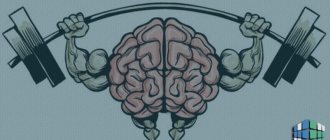Everyone knows that new knowledge has a positive effect on the quality of life, making us more educated, well-read and more interesting. Despite all the benefits provided by knowledge, it is sometimes difficult to overcome laziness and understand how to force yourself to study. There are general recommendations that allow you to finally overcome laziness and procrastination - check them out!
How to start doing well at school
Follow simple rules:
- Good study is possible in the absence of laziness
. If you don’t start fighting laziness, you won’t study well. - Plan your day clearly
. Sign up for a club - a change in activity will have a great effect on mental activity. Create a schedule that allows you to take up a new hobby after school. - Under any circumstances, complete homework assignments
. Do you think that you perfectly remember what the teacher said in class? Re-read the topic again. Remember about oral tasks, do not ignore them - this is especially applicable to the exact sciences. Learn the rules by heart. - Start your lessons with the most difficult tasks
. It is easier to cope with difficulties with a “fresh head”. When you start to feel tired, all you have to do is do the simplest things. - No classes tomorrow?
Spend half an hour on the material covered. Subsequently, learning new material will be easier. - With the proper level of physical activity, school performance will improve
. Do some simple exercises between classes. Surprisingly, this helps you remember the material better.
The art of time management.
“Most people confuse poor time management with destiny.” Kean Hubbard
How often do we make an “excuse” for ourselves - I don’t have time to study, I spin “like a squirrel in a wheel” all day. Unfortunately, you are wrong, you simply do not know how to manage it.
Time management is a technology for organizing time aimed at increasing the efficiency of its use. It implies a set of actions to train conscious control over the amount of time spent on certain types of activities and through which you can significantly increase your productivity and effectiveness.
Time management includes a wide range of activities: - setting goals; — planning and time distribution; — delegation of tasks and resource management; — time consumption analysis; — time recording; — priorities; — compiling task lists; - much more.
Basic principles of time management: 1. The main idea of time management is to spend time on the most important things in life. 2. Measure time by events. 3. Find out how you spend your time. 4. Set your life priorities. 5. Set goals for yourself. 6. Plan your time daily. 7. Get things in order. 8. Do something interesting that you love. 9. Draw strength from motivators. 10. Use modern time management techniques.
There are many time management techniques, read about them on the Internet and choose your preferred technique.
How to get ready for university studies
To start learning productively, your inner attitude is important. If you are on vacation, realize that your vacation has come to an end and you need to focus on work. Get involved in the process gradually, starting to do simple things shortly before the start of your studies.
If we are talking about summer vacation, then already in August you need to actively prepare for university life - this will make it easier for you to force yourself to study. Start by deep cleaning your room. Firstly, you will get involved in some kind of work, and secondly, it is more pleasant to start the school year in a comfortable environment.
Before you start learning, get used to the correct lifting regime. This is an important point. Often, many students, already from the first of September, cannot bring themselves to study, coming to classes half asleep, very slowly getting involved in the process. Take care of this issue a couple of weeks before school, and you won’t have to suddenly change your routine - do it smoothly. Start going to bed half an hour earlier every day than the day before.
Regularly “train your brain” by reading. This is important both during the holidays and in parallel with main studies. By reading on weekends or holidays when you come to university, you will not “shock” your body with a barrage of new information - its absorption will be familiar to you. Reading will help you get in the right frame of mind. If you absolutely do not like reading, try learning languages - a great workout for the mind.
Need more water
Another fairly common piece of advice is to avoid overdoing it on caffeine, but still drink enough water.
This recommendation has well-founded scientific confirmation - research in this area has been going on for quite some time. For example, during one of the experiments (a scientific publication based on its results was published back in 1988), it was shown that even slight dehydration (1-2%) can cause a decline in cognitive abilities. The study, in particular, noted a deterioration in short-term memory and the ability to solve arithmetic problems. And the authors of a more recent publication in the European Journal of Clinical Nutrition state that “dehydration is a prerequisite for cognitive decline.” So, to stay focused while studying, keep an eye on how you feel and stay thirsty—especially if you're actively exercising in addition to studying.
Photo by ITMO University
How to force yourself to learn something new for self-development
Some effective tips for those who don’t know how to force themselves to study:
- Don't force yourself, give yourself time to get into the right mood
. Ask yourself: “What will new knowledge give me, why should I acquire it, how can I use it later?” Use rational thinking and determine the real benefits of new knowledge. - Think about the material benefits of self-development
. Perhaps the acquired skills will help you get better in life. It's definitely worth working for.
- To force yourself to study, you should show interest in the object of study
. Perhaps the presentation of information is not very interesting, so new knowledge is difficult. Knowledge can be very exciting when presented correctly. Find an interesting video or book on a topic of interest. By awakening a keen interest in information, you will get rid of the problem that has arisen.
- Manage your time correctly
. Your thoughts should not be occupied only with self-development. Be realistic - everyone needs breaks. Determine how much time you are willing to spend on self-development, work, and rest. The result will be more noticeable with the correct allocation of time.
- Get enough sleep
. It’s difficult not only to start self-development, but also to take on any other task if you lack sleep. Chronic lack of sleep threatens many negative consequences, health problems, bad mood - not the best set for self-development.
Why there is no desire to study: 7 main reasons
- One of the main reasons why the desire to start studying does not arise or disappears is the lack of a clear goal and a clear plan .
- The problem arises when classes take up most of the time and there is simply no time left for anything else.
- Lack of rest also leads to loss of interest and drive. This condition is called burnout, then a person needs a lot of time to restore strength and energy.
- The reason may lie in doing something you don’t like ; it is very difficult to force a person to do something that he or she is not passionate about.
- The fear of failure when completing any task completely discourages the desire to attend an educational institution and do any work.
- The person doesn't know where to start . First write notes and then learn? Or solve the test first. Such uncertainty takes a lot of time.
- The personality of the teacher/instructor also plays an important role. The learning style influences the student's attitude towards the subject.
How to motivate yourself to learn on the job
Do you need to force yourself to study directly on the job, but is it difficult?
Some recommendations:
- Place everything you need for studying nearby and remove distractions
. Make sure you have everything you need: paper, markers, pens, pencils, books. Once you start learning, it’s better not to stop looking for little things, leading yourself astray. - Take care of water and a light snack
. Do you have to work and study at the same time? This requires large energy costs. A person achieves greater productivity by consuming the required amount of water and quenching thirst on time. Small portions of nuts, fruits, and energy bars are helpful. Avoid baked goods and fast food - they make you sleepy. - It’s easier to start learning by setting yourself up for specific goals
. Think about achievable and specific goals. Set the task correctly. Don't tell yourself: “I need to go through this section today,” say: “I need to learn how this system works, what its features are.” Specify your tasks. - Reflect on the potential benefits of the learning process
. Imagine that you have already learned everything you need and are now one step higher. - Manage your time correctly
. To work, study, other things. Don’t set tasks vaguely: “I’ll do this in the next few days.” Set clear deadlines.
Conclusion
Any student can cope with intense study if he understands why he is doing it all. With a well-drafted plan, a regulated routine and rewarding yourself for the work done, your strength and desire to study increases several times.
In addition to working on yourself, films and books also help to increase motivation, but the main condition for successfully achieving academic goals is still voluntary desire .
How to want to study if everyone is lazy
To start learning, you need to overcome laziness and find the right motivation. How to do it?
Advice from psychologists
- Get your priorities right
. Are you more interested in playing games, spending time watching TV series, or eating pizza? You will have to force yourself to return these phenomena to the framework of ordinary desires, and try to perceive study as a priority. If entertainment is always at the forefront, important tasks will be pushed back and will lead to a pile of unfulfilled tasks, which invariably turns into stress. Realize ordinary desires in your free time from your main task. - Compare yourself to yourself
. Many are accustomed to focusing on someone, but psychologists advise doing otherwise. Constantly rushing after those around you, you will soon give up. Record how much you have advanced in knowledge and professionalism compared to the past month or year. Draw conclusions. By becoming better than yourself yesterday, you will definitely begin to grow in the eyes of those around you. Don't try to prove to someone how much you have changed, direct this desire inside yourself. Don’t try to “appear successful and busy”—try to be one. - Put your thoughts and space around you in order
. Cluttered shelves, garbage on the table or on the floor - this interferes with the normal educational and work process. Put things in order, get rid of unnecessary things. Remember: the more order there is in the house, the more there is around you. The psychological mood depends on the surrounding atmosphere, take this into account. - Reward yourself
. When starting to work on difficult material, think about the reward in advance. Is there a lot of work ahead? Set aside some money and time to treat yourself later - with clothes, a trip, a theater, dessert, or something of your choice.
Motivation of successful people
Let's give examples of some successful people. What are their two most important habits?
Sport
Successful people always make time for physical activity. Charles Dickens walked about 10 kilometers a day - this helped him not to “burn out” from intense work. Before an important meeting, Steve Jobs walked, getting ready for an important conversation, putting his thoughts in order.
Books
Regardless of the circumstances, you can always find access to books. One of the richest people in the world, Bill Gates, considers this his most important resource. You can improve your knowledge in any area economically and effectively. Winston Churchill devoted every day to reading biographical, philosophical, historical or economic works. Billionaire David Rubinstein, in turn, set himself the goal of reading at least six books every week.
TL;DR
- Plan intense mental activity for the first half of the day (regardless of when this “half” begins for you). During the first two to three hours after waking up, you will be extremely focused and motivated to solve complex problems.
- Keep in mind that approximately seven hours from the moment you wake up, your motivation and concentration will reach their lowest point - at this time it is better to break away from your studies and go for a walk or jog to “unload your brain” a little. Once you have regained your strength in this way, it will be easier to continue exercising.
- In general, don't neglect sports. Exercise alone won't improve your grades, but it can make your studies more effective - making it easier for you to cope with stress during exams and remember information in lectures. To do this, you don’t have to spend long hours in the gym or sign up for a kung fu class - even 150 minutes of aerobic exercise a week will be a good addition to your studies and will improve your overall well-being.
- Remember that even slight dehydration reduces cognitive performance, so try to pay attention to how you feel—don't ignore your thirst. Especially if you play sports during the day.
- Despite the fact that it is better to plan the most intense mental stress in the first hours after waking up, memorizing information can be postponed until the evening. If this is problematic - for example, you need to memorize a lot of notes for an exam - use the time before bed to review what you have memorized. This will make it much easier for you to remember the information the next day.
- If you put off studying until the last minute, remember that you are not alone. To “trick your brain,” try setting yourself intermediate mini-deadlines (for example, “find articles on the topic of your coursework,” “write a literature review,” “think through the structure of your research”). Starting now, mark each day before the deadline that you have made progress towards completing the task. A chain of “crosses” or “dots” will be an additional incentive to do at least something during the day that will help move towards the goal.
In the next part of our review, we will talk about how muscle memory affects grades, and why “knowledge of knowledge” is an area that will help you seriously improve your academic performance.
Tip #8. We break down the complex into several simple steps.
Of course, it is impossible to master the entire program in a specific discipline in one day. In this case, the quality of education will suffer, and you will be left with a mess in your head. Why not just start preparing for the upcoming milestone in advance, gradually studying the subject: for example, 1-2 topics per day or 15-30 minutes daily.
Tips for solving difficult problems
Taking small steps forward is easier and more enjoyable than carrying a heavy load.
Tip #2. We plan the day/week/month in advance.
Time management works wonders. Sometimes it seems that 24 hours a day is not enough to accomplish what is planned, but if you manage the time wisely, the individual will even have time to have a pleasant rest.
Time management concept
If the month has already been planned, then it is necessary to make adjustments in accordance with the current situation (force majeure, etc.). It is best to plan each day by first identifying the most important and difficult tasks, and then reducing their intensity and importance. Moreover, when implementing the planned plan, you should control the time spent.
Be consistent and constant
In learning, it is important to follow a pattern that is designed for a particular subject. It is not by chance that training programs are developed. Therefore, you should not skip over topics; it is important not to miss classes.
Consistency most quickly leads to success in learning, and it is precisely this that is the most important motivating factor. It is worth remembering that strong knowledge will always come in handy. It would not hurt to remember the statements of famous people about motivation for every day.
Don't be afraid to make mistakes
Motivation during study, as in many other things, is often reduced by mistakes and failures. Reconsider this attitude to business. When you learn something new, mistakes are inevitable, because you acquire new knowledge. Consider them as experiences that you won’t repeat in the future, so you will become smarter.
Treat failures in your studies as a challenge, as if you are passing another level in a computer game and you need to do some actions several times in order to understand all the difficulties and learn to avoid them.
Where does motivation come from?
Motives are directly related to human needs, which have a certain priority. This is well illustrated by Maslow’s pyramid, named after its creator, a psychologist.
Physiological needs are located at the bottom level, self-realization is at the top.
Until the needs of the lower level are satisfied, it is difficult to move to the next one. What hungry person would prefer reading a book to a delicious meal? Or will he indulge in speculation about the meaning of life, without a warm and safe home? Self-development and satisfaction of cognitive needs is a kind of “psychological luxury.” And, by the way, the higher the level of needs that motivate a person to work, the more productive his work is.
Dream about the future
Study: Pixabay
In order to motivate yourself, focus not only on the current moment of gaining knowledge, but also on more global goals. Think:
- Why are you studying?
- What prospects will this open up?
- What dreams will it help you achieve?
- What will your life be like if you achieve all your learning goals?
A clear understanding and vision of the result will help you overcome even the most difficult path. The desired goal can be visualized, as the writer Vadim Zeland talks about, using a wish map or description, mental representation.











